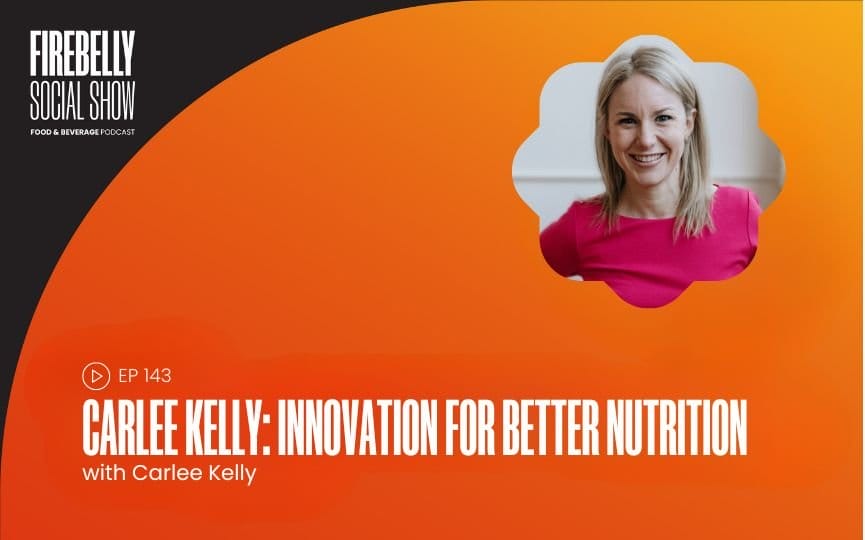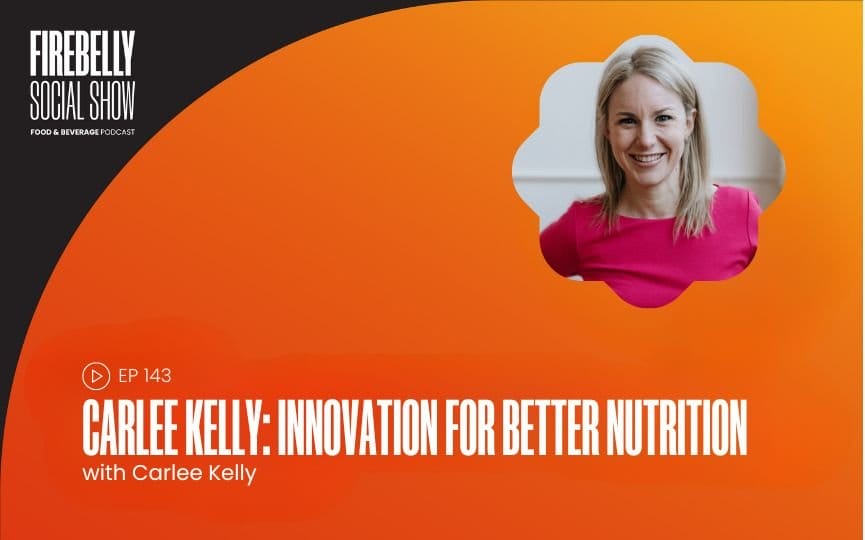Carlee Kelly: Innovation For Better Nutrition

With so many healthy options in the market, it’s hard for customers to discern which products meet their nutritional needs. However, the intersection between business viability and consumer health is achievable in today’s food landscape for food companies. But how can these brands achieve quality over convenience?
Food and beverage industry expert Carlee Kelly shares her experiences helping brands navigate the complex food and beverage innovation space. Having a grounded perspective as a nutritionist with an entrepreneurial vision, she sheds light on integrating innovation with nutrient density and quality in the food and beverage industry. She emphasizes the importance of brands maintaining authenticity to realize health-focused ideals despite the business challenges that come with it. Carlee dives into the significance of adaptogens, nutrigenetics, and microbiome health, highlighting how they’re shaping the future of what we eat.
On this episode of the Firebelly Social Show, Duncan Alney talks with Carlee Kelly, Founder and Chief Product Innovator of Lettuce Eat, about innovative food development and nutrition science. Carlee shares her unique route into food innovation, the importance of meeting consumer health needs within a challenging food landscape, microbiome health and its role in today’s food choices, and the complexity behind project management in food innovation and product development.
Here’s a glimpse of what you’ll learn:
-
[1:23] Carlee Kelly shares her unique route into food innovation, beginning with her nutritionist background
-
[02:42] The importance of meeting consumer health needs within a challenging food landscape
-
[04:38] Insight into the emerging focus on mood-boosting foods and nutrigenetics
-
[05:47] Carlee talks about the changing perspectives on dietary needs and available health-conscious options
-
[7:18] The role of branding and consumer expectations when it comes to ingredient transparency
-
[9:36] Carlee’s role from concept ideation to product shelf life
-
[16:38] Microbiome health and its role in today’s food choices
-
[23:39] The potential benefits of frozen foods retaining more nutrients than produce on the shelf
-
[24:32] The complexity behind project management in food innovation and product development
-
[27:15] The value of maintaining authenticity over following trends in product development
About Carlee Kelly:
Carlee Kelly is the Founder and Chief Product Innovator of Lettuce Eat, a company that elevates your commercial food concept and scale for international markets. A seasoned food and beverage industry expert, she is fondly known as a business-savvy entrepreneur and a nutrition science nerd. She holds undergraduate and graduate degrees in nutrition, channeling her passion for enhancing the food landscape toward mission-driven endeavors. Carlee specializes in plant-based nutrition and allergen-friendly foods, creating accessible, nutritious options for packaged goods. Her deep knowledge of nutrition, food systems, and business strategy makes her a valued partner to brands aiming to make a positive impact through their products.
Resources Mentioned in this episode
Quotable Moments:
-
“The best versions of dietary need state foods are more accessible, but we still need to navigate between healthy and unhealthy options within those categories.”
-
“Keeping food as real and as whole and as close to nature can, I think, is where real innovation comes from these days.”
-
“Innovation work is where you have to get out of your head and more into introspection and creativity.”
-
“Operating from a place of calm and centeredness is a recipe for successful leadership.”
-
“Nutrigenetics shows us how, depending on what we’re eating, we can impact the way our genes are expressed.”
Action Steps:
-
Integrate more whole foods into your diet: Incorporating unprocessed foods can positively influence your health and gene expression.
-
Educate yourself on food labels and claims: Understanding ingredient transparency helps make informed choices and promotes consumer awareness and better dietary decisions.
-
Consider the processing techniques of packaged foods: Look for foods with minimal processing, as innovation in this area can preserve nutrients and flavor.
-
Prioritize rest and meditation as a leader: These practices can help inspire innovation and clear decision-making.
-
Stay open to new dietary sciences: Keeping up-to-date with emerging fields like nutrigenetics allows for adapting to nutrition trends that are scientifically backed.

